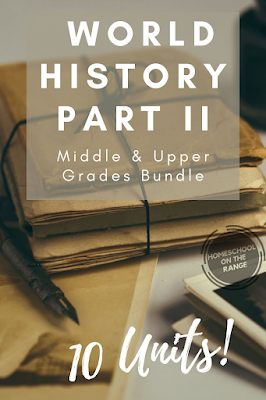There are so many reasons to study international cooking methods and foods, not the least of which is:
- Cultural awareness. Popular restaurants that are typically associated with a cuisine (eg, Taco Bell) aren't necessarily representative of the real thing. There are ethnic bases of cooking (which you'll often see in sauces), and you'll get to know these staple crops for each region of the world, giving you insight into their geography.
- World history. Places that are close to each other and / or share a similar colonial history generally have similar cuisine. For as long as people have been traveling place to place, they've been bringing their cuisine with them. You can trace the mobilization of historic cultures by looking at regional cuisines today. Look at the regional cuisines in America, and see how they match up to the earliest immigrants to that region...
- Shared experiences. Have you ever noticed how there is a chicken and rice dish in nearly every culture? Take that a step further and you'll see geographic similarities, or ethnic bases of cooking. Tropical foods tend to be spicier and rely on more seafood, whereas Scandinavian foods tend to be heavier, heartier, and a little more bland.
- Preparation for future business or travel opportunities. Everybody eats, and food is often an icebreaker. Knowing a bit about someone else's foods and being respectful (even if you don't love the food) can go a long way in the world.
- Did we mention it's fun and tasty? 😊
Get the entire unit in the World History Bundle!
 Includes ten unit studies (plus a bonus!) covering World History. Each unit addresses a new topic, spanning from Ancient Hawaii to modern-day. There is also a study of archaeological concepts. Each unit has introductory text, which will give the student basic background information about the topic at hand.
Includes ten unit studies (plus a bonus!) covering World History. Each unit addresses a new topic, spanning from Ancient Hawaii to modern-day. There is also a study of archaeological concepts. Each unit has introductory text, which will give the student basic background information about the topic at hand.- There are photographs and illustrations, and we have also included primary documents when available.
- After this text, there are featured videos, which augment the background information and help make the topic more accessible for more visual students.
- You will also find a short list of reading books, including a featured novel that the unit builds upon.
- There are vocabulary words, places, and people to identify.
- Reading comprehension, critical thinking questions, and writing assignments are included.
- We add fun with hands-on activities and extra videos to watch that will bring the era to life.
Product samples: Motel of the Mysteries & Encounter
Includes:- Motel of the Mysteries
- Island Boy
- Encounter
- The Odyssey
- A Loyal Foe
- Indigo Girl
- Gold Rush Girl
- Around the World in 80 Days
- Number the Stars
- To Kill a Mockingbird
- House of the Seven Gables (bonus)


No comments:
Post a Comment
Note: Only a member of this blog may post a comment.